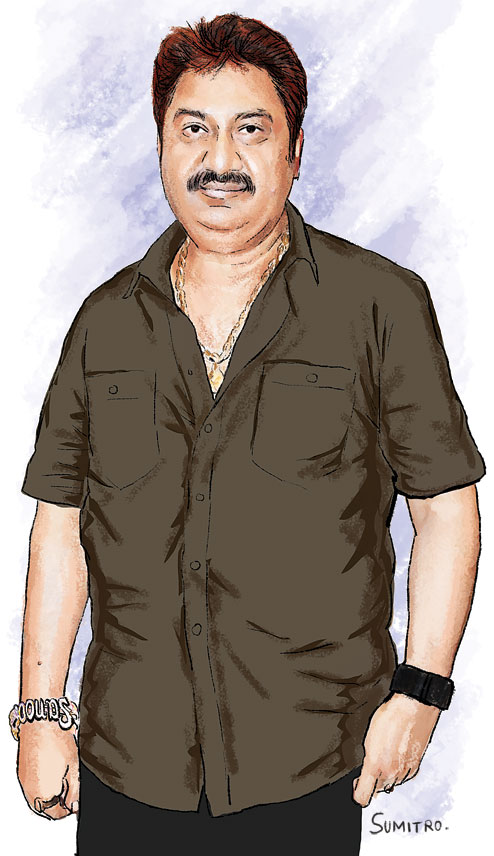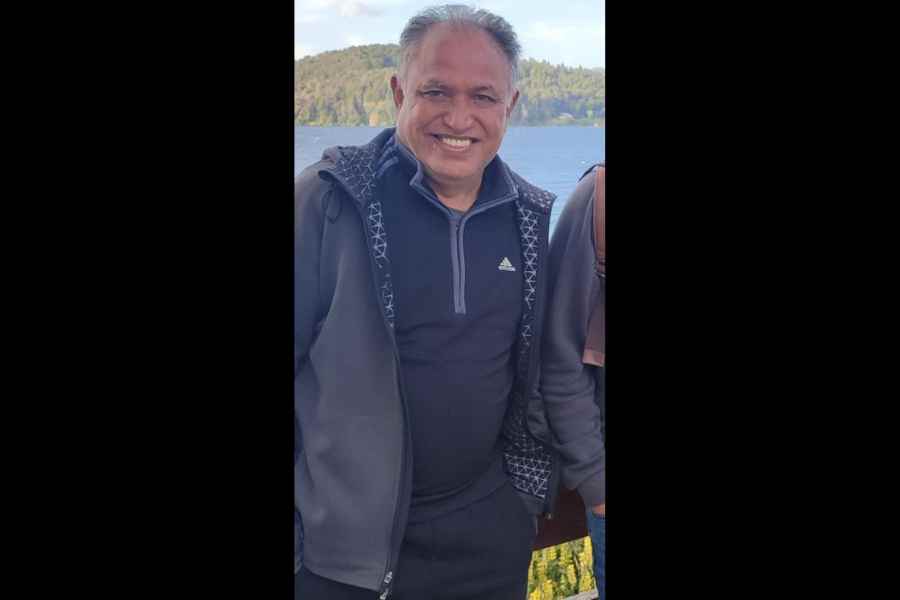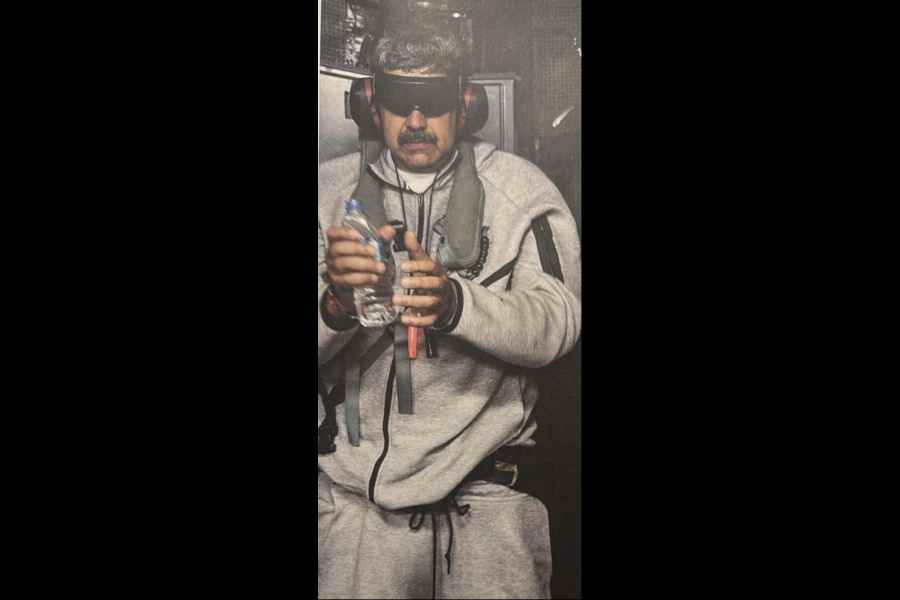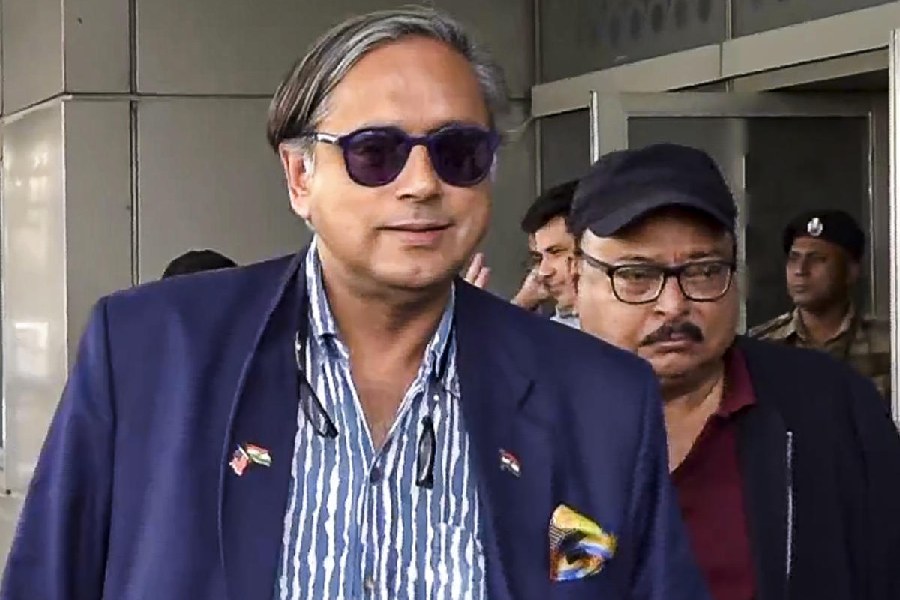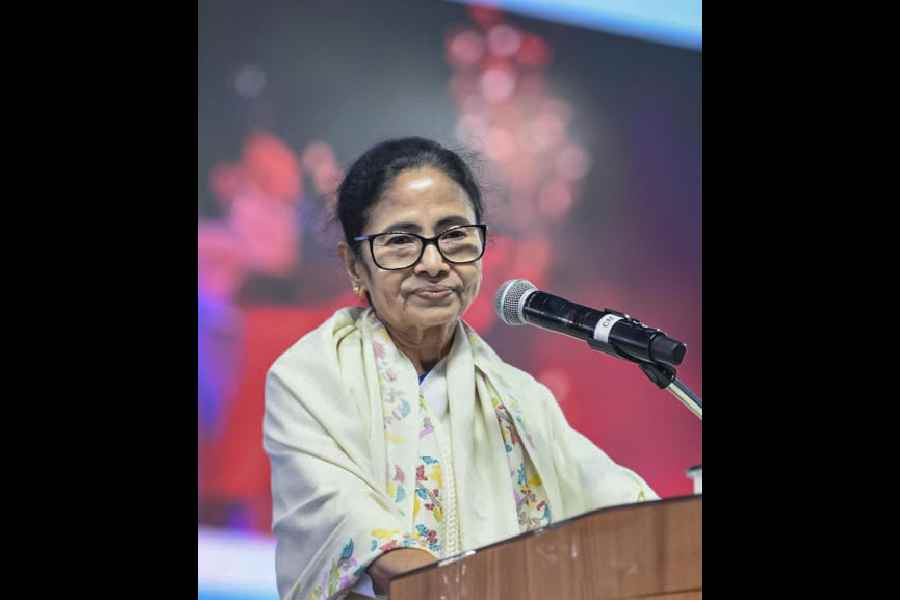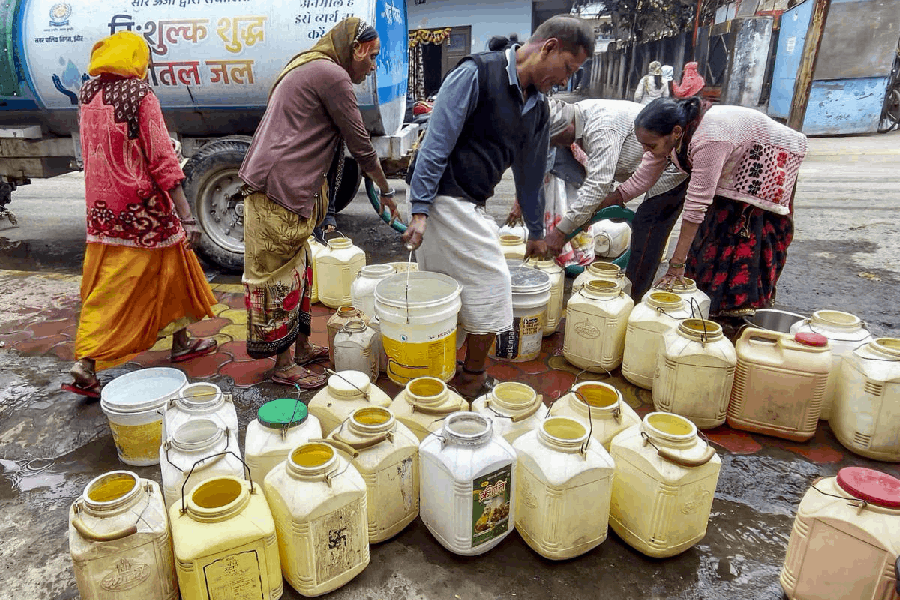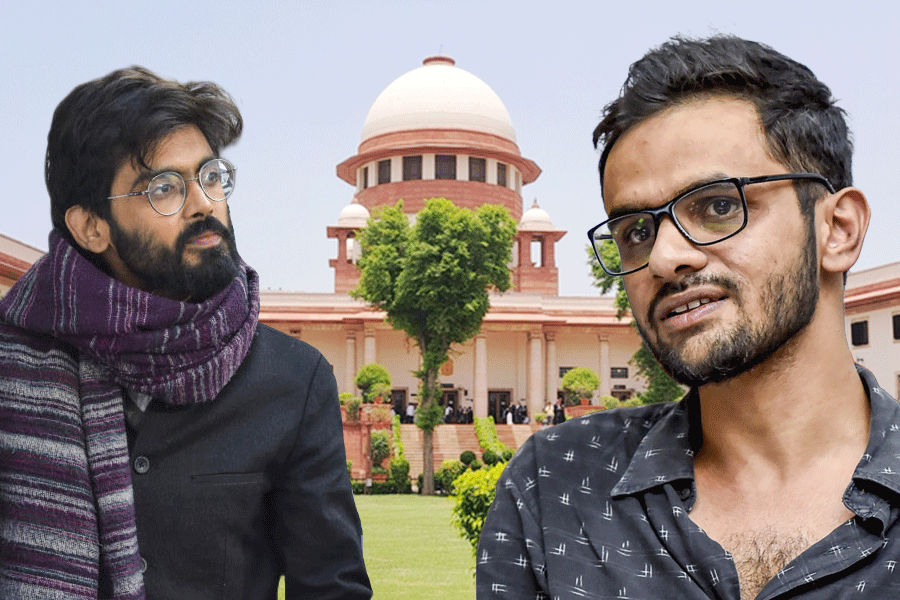
The season marks the return of Kumar Sanu. The singer - who rose in the Hindi film music industry with his Kishore Kumar-like voice in the early Nineties - has donned a different role as well. Meet Kumar Sanu, the music composer.
Clearly, the 57-year-old singer, who is also an on-and-off politician, has a lot going for him. He has just returned from a trip and has to leave soon for a recording of his songs. The man is busy.
After several years of musical oblivion - at least in Bollywood - he is being feted again. He has made a comeback of sorts as a playback singer, having crooned two songs in the recent Yash Raj Films production Dum Laga Ke Haisha.
"They paid me Rs 35,000 for each song. It may not sound much but it amounts to a lot when you consider that many singers today work for free or even pay to get their songs featured in Hindi films," he says when we meet in his fifth floor apartment in Mumbai's upscale Lokhandwala neighbourhood.
What's more, he says is that he has acted in that film playing a character called Kumar Sanu, which is evidently based on his life.
What, however, thrills him most is that after 26 years in the industry, he has now composed music as the music director of two Bengali films - Tobu Aparichito and Nabajiban Bima Company.
But then Bengal is where his roots are. It was in the north Calcutta suburb of Sinthi that Sanu - then called Kedarnath Bhattacharya - grew up with his four siblings. Their father was a Hindustani classical singer who barely earned Rs 1,000 a month teaching music.
Those were difficult times. "We had rice and a vegetable or dal for lunch and roti and gur for dinner. Once a month, we had mutton, with 250gm of meat distributed evenly among all seven family members," says the singer who once had two shirts and three pairs of shorts by way of clothes and now drives around in a gleaming Audi in Mumbai.
It is perhaps this - and his pride as a singer - that prompted Sanu to ensure that his music pays. "I always charge for my songs and never sing for free."
He, however, emphasises that he does not mind singing "for nothing" when it comes to new directors or producers with a tight budget. "When I am in Calcutta, for instance, I often charge nothing for singing for debutant directors and small producers who cannot afford to pay me," he adds.
Sanu understands what struggling artistes go through - having himself undertaken the arduous journey from Sinthi to Mumbai. He knew, even as a young man, that he had to move to the capital of Hindi cinema to make a name for himself.
He always loved music - and had a good singing voice as well as an ear for music. As a child, though, his father had made him learn the tabla.
So Sana-turned-Sanu - whose name is derived from his nickname, Chhana, cottage cheese especially used for making sweets in Bengal - became a tabla player at the age of eight. Sanu points out that he was "fair and round" - quite like a ball of chhana - when he shared the dais with well-known musicians, including the Rabindrasangeet exponent Debabrata Biswas.
But a chance performance at a 1979 function in Bengal's Naihati, where he had been asked to fill a gap between two singers, turned him into a singer.
After an aborted attempt to finish his BCom from Calcutta's Manindra Chandra College, Sanu decided to give up studies which never interested him and instead focus on music.
He started singing in hotels and restaurants on Park Street and Shakespeare Sarani in Calcutta, while "burning with the ambition to be a playback singer in Mumbai".
He finally moved there in 1986, taking up a "job" as a singer in a Chembur hotel.
With generous tips from the hotel clients, Sanu started making cassettes of his songs to give them to music directors.
It was during a recording at a studio at Churchgate that he ran into the late ghazal singer Jagjit Singh who, impressed by his voice and its resemblance to Kishore Kumar's, introduced him to music directors Kalyanji and Anandji.
He was soon part of the Kalyanji-Anandji orchestra and started performing at live concerts as an "opening batsman", as he puts it.
In fact, it was Kalyanji who rechristened him Kumar Sanu à la Kishore Kumar.
"Kalyanji had told me that if I wanted to make a mark in Mumbai, I should give up my surname since that identified me as a Bengali singer. He gave me my new name," says the burly six-footer, attired in a pair of army camouflage trousers and a black T-shirt with a Prehispanic Eagle on its back.
The death of Kishore Kumar in 1987 created a vacuum that Sanu filled.One of his supporters was Gulshan Kumar, the slain owner of T-Series, which was known for its cheaply priced music cassettes. Sanu flew for the first time in 1987 when he was sent to Delhi on an Indian Airlines flight for a recording of his rendition of Kishore Kumar's songs.
The songs sold well, and a delighted Gulshan Kumar presented him with a Maruti 800 in 1988. That was the year when Sanu bought his first flat, a one-bedroom unit in Mumbai's Ratannagar.
He sang for a few films, but it was Mahesh Bhatt's Aashiqui (1990) which catapulted him into the big league. The film became a mega hit because of the songs, and Sanu emerged as a star in Mumbai's music industry.
"I have never looked back after that, even though ups and downs are part of any singer's life," he says.
He has won a series of awards as a singer, including the Padma Shri in 2009 and the Maharashtra Ratna award in 2014. He has acquired a fan club as a judge in a music reality show on television.
But nothing, he stresses, compares with the Rs 1,500 he received from Jagjit Singh as payment for recording a song for a film called Aandhiya in 1987.
"This was my first film song in Mumbai," he says. "It is another matter that Aandhiya was never released."
Today, Kumar Sanu lives by himself in Mumbai. His first marriage ended in a divorce in 1999. His second wife Saloni lives in London with their daughters Sana, 12, and Ana, 10, who study there.
His associates say he shuttles between Mumbai and London, where he is said to have a house.
In Mumbai, he is planning to move into a spacious apartment on the 20th floor of a residential tower in Lokhandwala. Right now, he is living in a rented flat in the area.
The living room is an ode to Kumar Sanu, the singer. Photographs on the walls show him performing at concerts and receiving the Padma award from the then President Pratibha Patil. Shields and trophies crowd every shelf of the glass cabinets that dot his room.
Yet, amid all this, there is no trace of Kumar Sanu, the politician: no photos with any politicians, no party flags, no posters. It was late last year that he joined the Bharatiya Janata Party (BJP) - or rather rejoined it, having embraced it in 2004 and then quitting it reportedly to pursue his musical career. BJP president Amit Shah welcomed him back into the party in a photo-op that the media grabbed.
But since then Sanu seems to have gone into political hibernation. He was conspicuously absent from the BJP's recent municipal poll campaigns in Bengal.
Sanu says he had been asked to participate in the municipal campaigns in Calcutta but he could not do so since he was away.
"Just because I have joined the BJP does not mean that I am an active BJP member," he snaps, when pressed on the issue.
He argues that he had earlier joined the party because he "adored" former Prime Minister Atal Behari Vajpayee. "This time, I joined the BJP because I like some of the things that Prime Minister Narendra Modi said he wanted to do for the country."
But at the same time, he adds that he also holds a few other political leaders in high esteem, including President Pranab Mukherjee, formerly a Congressman, and Trinamul chief minister Mamata Banerjee. The Bengal CM also bestowed on him a lifetime achievement award as a Bengali playback singer in 2014.
"I have always liked Mamata di and have even campaigned with her in the past," he says.
But in his heart, he stresses, he has always been a singer and will remain so.
"My reason for joining politics is not to make money, as I have enough of my own, but to help the poor," the singer says, adding that he has already built a school for orphans in Bengal's South 24 Parganas.
The Kumar Sanu Vidya Niketan in a village near Canning is almost ready, too. The school is slated to give free education to children from impoverished families till Class V.
Kumar Sanu now looks at a clock and gets up to leave for Sana studio, which he owns in Andheri and has named after his older daughter. He will record two songs today, one for a Bengali film and the other for a Hindi film.
Two men enter the lift on the way down and greet Sanu. On the ground floor, they ask the singer if they can take a selfie with him. He readily agrees.
"This is the most you can expect to get from the public as a singer. Even after 26 years, they still stop me in the streets and want to take pictures with me," he says, before disappearing into his waiting car.

